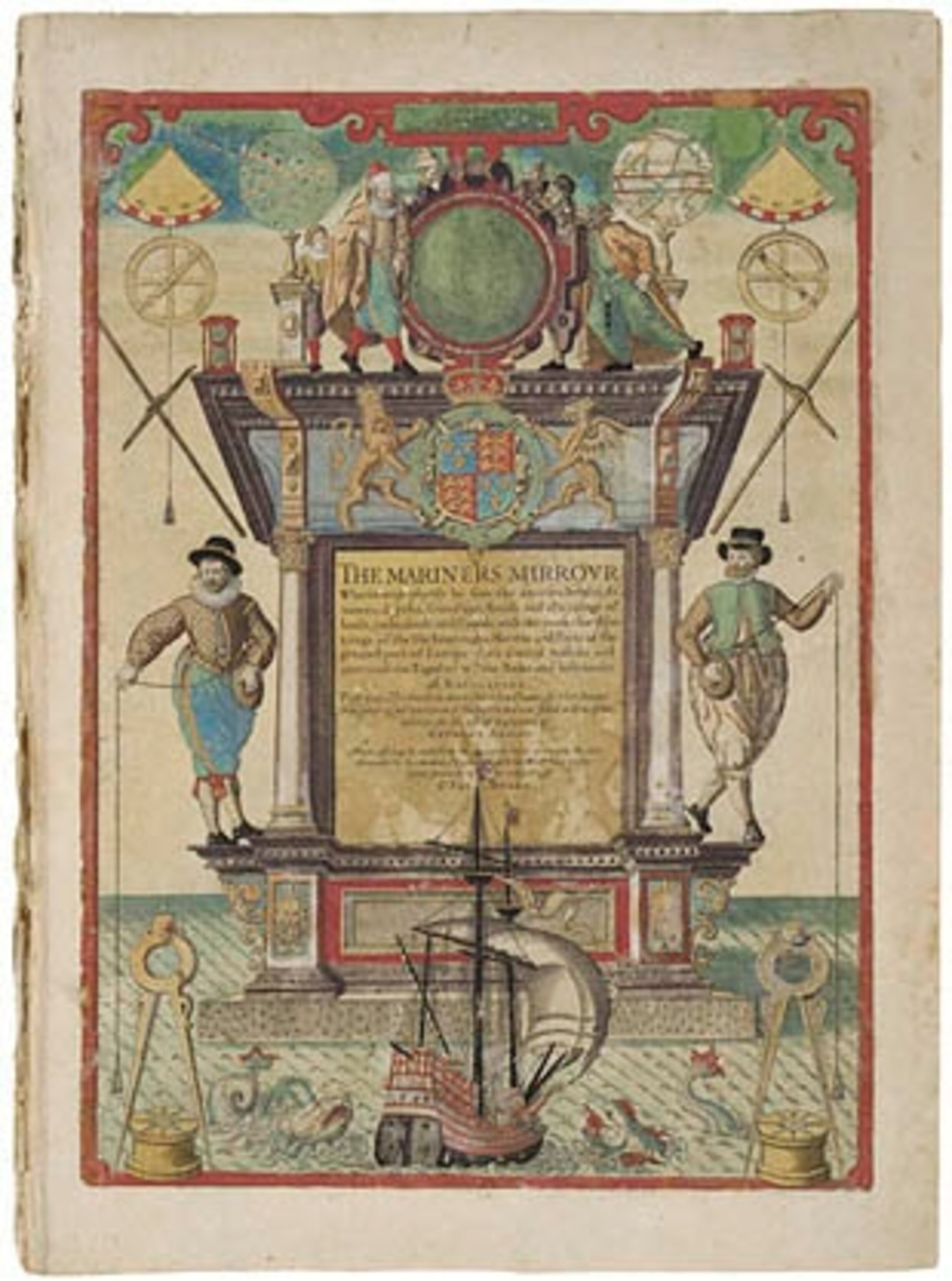
Get Lost at Sea in D.C.’s Folger Shakespeare Library
By: Cindy Scott
Ahoy! Calling all would-be salty sea dogs and lovers of nautical lore–Washington, D.C.‘s Folger Shakespeare Library has just the exhibit for you. Lost at Sea: The Ocean in the English Imagination, 1550-1750 is a brilliant collection of writings, maps, atlases, globes, and antique navigational paraphernalia, on display now through September 4 in the library’s great hall. Visitors get a glimpse of how our friends across the pond perceived the seven seas several centuries ago. Sail into the psyche of a seafarer and discover what shaped the many attempts to explore–and express–the ocean’s mysteries from the time of Shakespeare and his contemporaries to the mid-1700s.
These days, many prefer the speed and convenience of air travel. We relish our ability to hurtle along, cradled between jet engines and largely disconnected from the roaring waves that might be whizzing past miles below. The Folger’s exhibit takes you back to a much different time, when the astrolabe–not the GPS–was the navigational instrument of choice and the ocean was not merely a thing to traverse, but a widely acknowledged seat of divine force.
This is not to say the sea no longer produces emotional, spiritual reactions from us in the modern day. In a public lecture last Tuesday, exhibit curator Steve Mentz described a common sense of awe mingled with fear–“that moment when we stand on the beach and have this feeling of being in the presence of the largest thing on the planet.”
However, the exhibit forbids over-long forays into sentimentality with its constant reminders of the extreme danger that primitive maritime travel often posed. Ocean voyages during the so-called “Age of Discovery” were perilous undertakings indeed, and much of the art and writing from this era reflects that sobering reality. Human beings, Mentz reminded his audience, have long acknowledged that the ocean is “a place we need to accommodate ourselves to, because it won’t accommodate itself to us.”
After his lecture, I asked Mentz how travelers today could benefit from an understanding of the hardships endured by seafarers of old.
“Scurvy,” he joked.
“Eat your fruits and vegetables when you travel, because that scurvy is bad stuff.”
- National Geographic Expeditions
To get more pearls of wisdom from an ocean of great artifacts, get thee to the Folger! And if that doesn’t quench your maritime mood, check out this handy list of top ten ocean centers on the library’s web site.
Photo:
Lucas Janszoon Waghenaer’s “The Mariners Mirrour” via Folger Shakespeare Library
